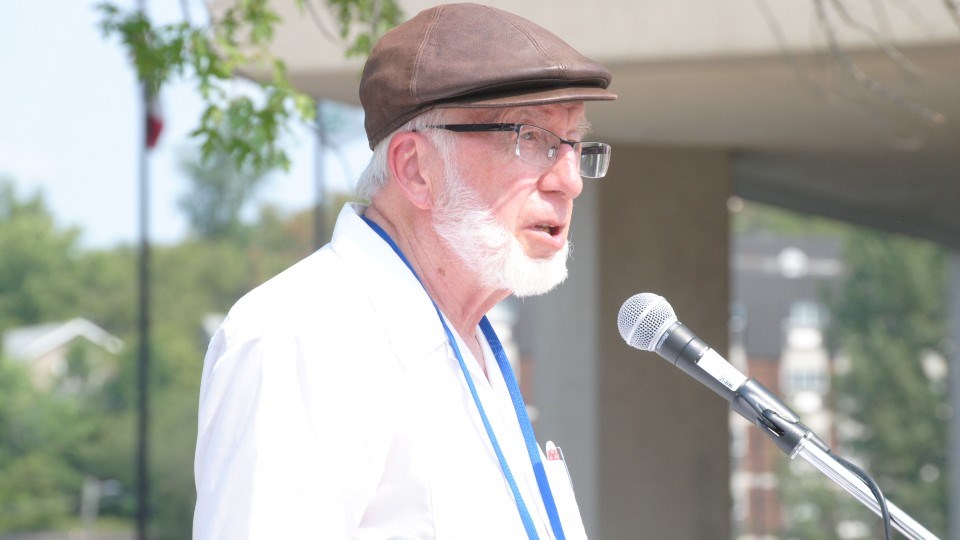Local physician Dr. Richard Denton and a group of other local docs working for a worldwide nuclear arms ban plan on asking Greater Sudbury city council to give a statement of support sometime in the near future.
“There is no treatment for a nuclear war, the only treatment is prevention, and so that is why we’ve come up with the Treaty on the Prohibition of Nuclear Weapons,” Denton told Sudbury.com following his Aug. 20 presentation at a Fridays For Future event downtown.
“It’s prevention, and it’s to prevent an accident, miscalculation, terrorists or an escalation from a conventional war to a full-scale nuclear war.”
The Fridays for Future events centre on tackling issues related to climate change, which Denton said very much relate to nuclear arms.
“Climate change is causing desertification, so we’re seeing a migration to the higher latitudes -- to the Middle East, where they cause strife, and when they’re strife, it could lead to nuclear war,” he said, adding that the same could be said for other areas of climate strife.
Another example he offered was water disputes, such as a dam being constructed on the Nile River, which destabilize regions as jurisdictions fight for control of the precious resource.
Nuclear weapons cause environmental degradation of their own accord.
“We know that nuclear bombs are not just bigger, better bombs, what they do is put soot, dirt in the stratosphere which then blocks out the sun and that causes crop failure and mass starvation,” Denton said, calling the weapons “illogical” and “insane,” bringing about the potential for bringing about a nuclear winter that could kill billions of people.
“Don’t bank on the bomb,” he told the Aug. 20 crowd, sparking a brief chant.
This, he later explains, points to another campaign, which seeks to discourage people from investing in companies involved in the production of or profiting from nuclear weapons.
So far, 54 countries have ratified the United Nations-backed Treaty on the Prohibition of Nuclear Weapons, and 86 additional countries have signed on and are in the process of ratifying their agreement.
Canada has yet to sign on, which is why Denton said he’s joining his colleagues with the International Physicians for the Prevention of Nuclear War’s Sudbury chapter in seeking the support of Greater Sudbury city council.
There are approximately a dozen active members and additional supporters in the local chapter, Denton said.
A Nanos poll of 1,000 Canadians earlier this year revealed that 74 per cent were in support of Canada adhering to the treaty.
Among the 344 Ontarians polled, 45.6 per cent said they’d be more likely to back a political party that supported Canada signing on to the treaty.
“The federal level of various governments are not listening, so we’re now at a grassroots in approaching municipal (governments),” Denton said.
The city’s elected officials are expected to consider the proposal during a meeting in the near future, which Denton has yet to firm up but says should be sometime this year.
The hope, he said, is that city council will take up the mantle and advocate on behalf of Sudburians for the federal government to sign on to the treaty.
Tyler Clarke covers city hall and political affairs for Sudbury.com.
